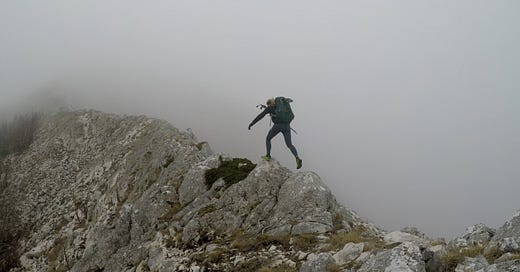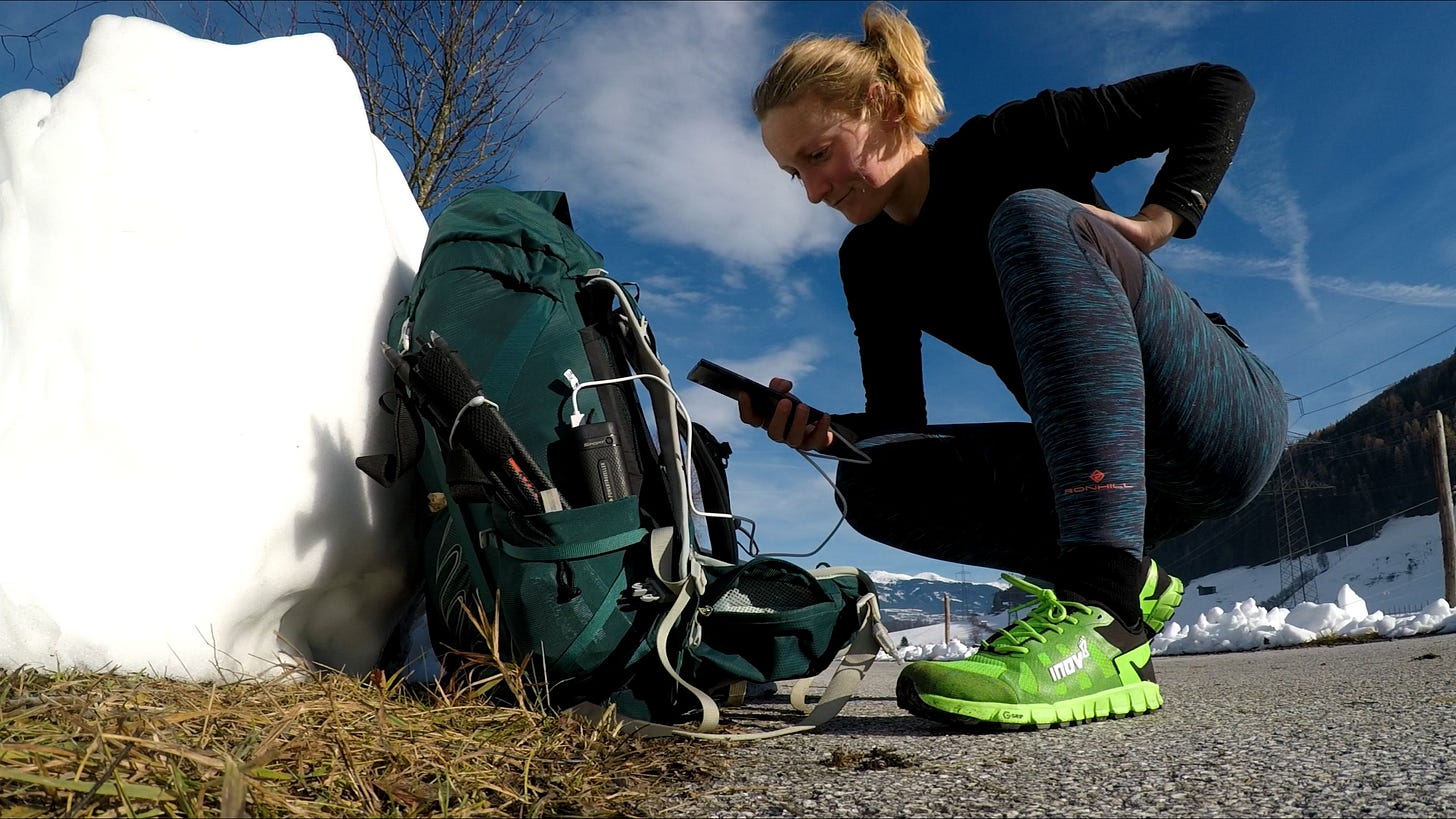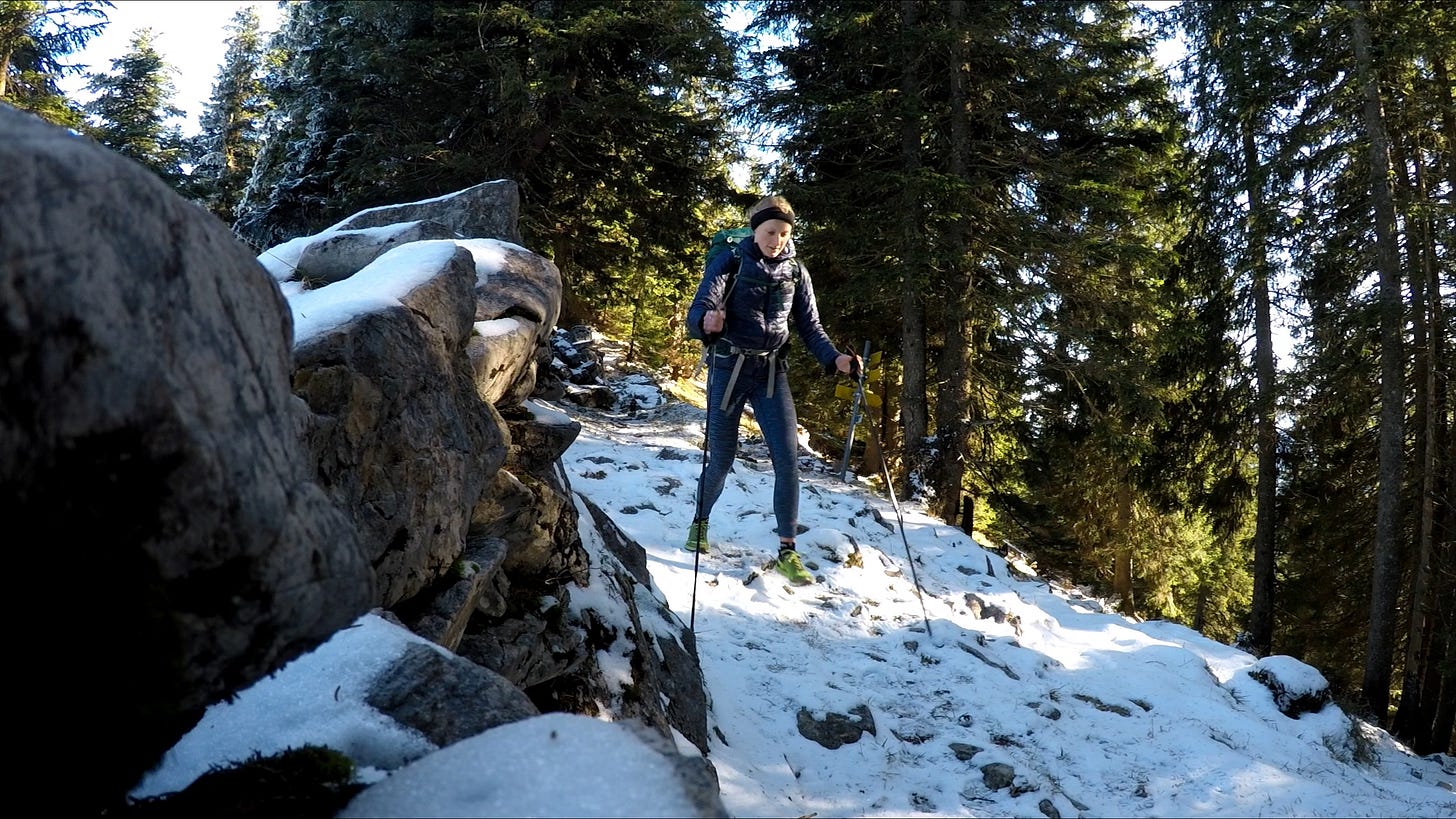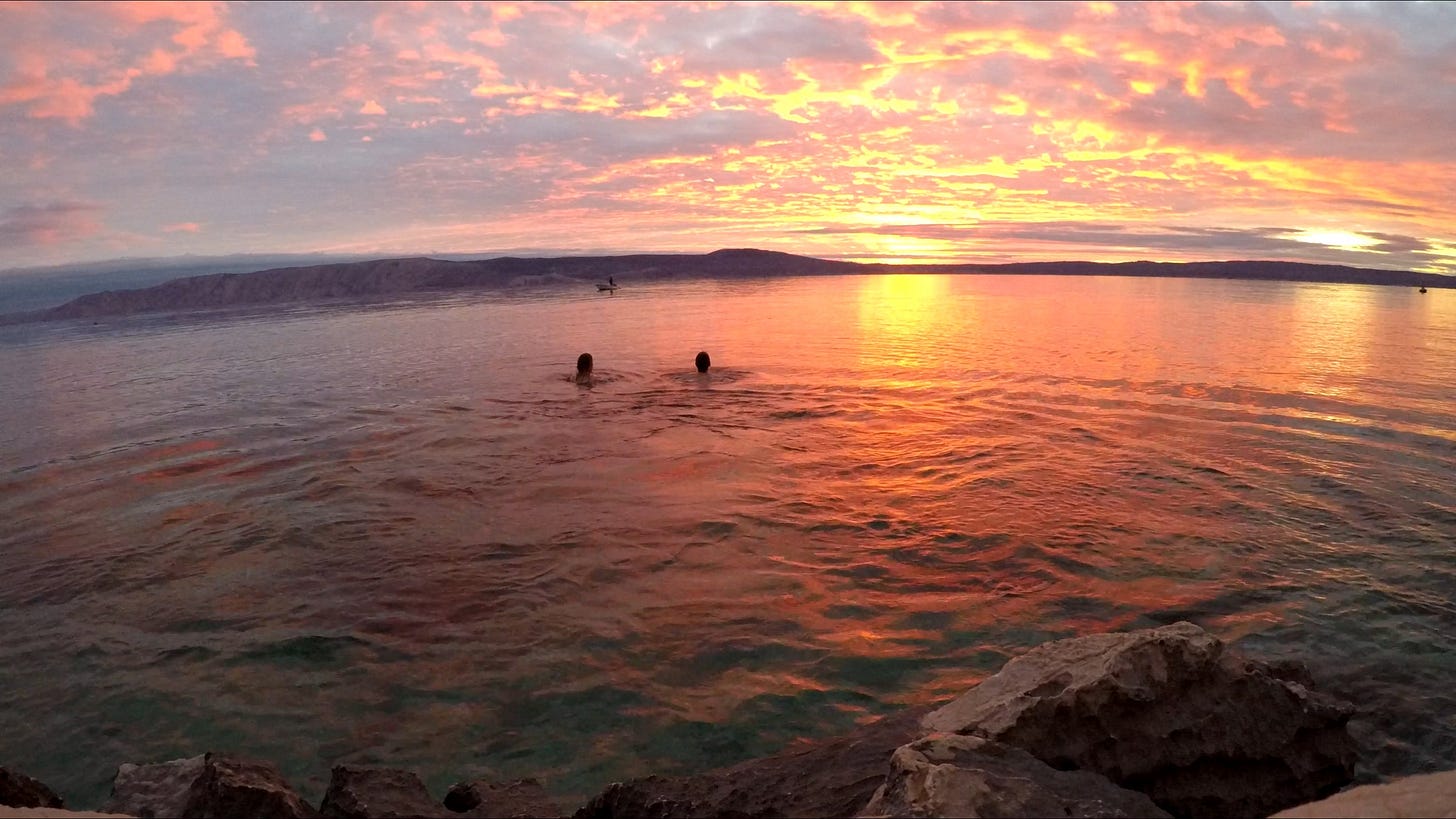Simple climate action // I S S U E # 2 9 // T R A V E L
Travel for travel’s sake
“We move, are moved or we die,” begins a classic research study in the social sciences. Humans, at our core, are a traveling species. Every individual, even in the most sedentary of societies, has adventure written into their DNA. Quite literally. Genetic studies have found those who set out first for new lands disproportionately contributed to the gene pool where they landed.
That memory is etched in all of us. Perhaps that’s one reason, amid the tragedies of this pandemic year, people feel such an urge to go somewhere. “For my part, I travel not to go anywhere, but to go,” wrote Robert Louis Stevenson, author of Treasure Island. “I travel for travel’s sake.”
Indeed, as the researchers in the journal Nature Energy found, as soon as people have the money and opportunity, we tend to spend our extra cash to travel. To put an even finer point on it: people’s most energy-intensive spending is almost all movement: vehicles, fuel, flying, and vacations (you can see this charted here).
As the world’s living standards rise, a globalized world means a mobile one. As we move beyond the pandemic, we’ll need to satisfy people’s desire to travel, and even their thirst for adventure, in ways that don’t pour billions of tons of greenhouse gasses into the atmosphere.
This is starting to happen, albeit far too slowly. Aviation is starting the process of replacing oil with hydrogen, synthetics, and electric batteries. Europe has begun rebuilding its long-haul train network to avoid flying altogether. An electric airplane stole the Paris Air Show in 2019, and Fiat Chrysler inked a deal earlier this year to mass-produce urban electric aircraft starting in 2023. Electrify everything, in other words, and power it with clean energy.
But, there’s still the ancient mode of transportation: our feet. While a bit out of step with modernity, some of the greatest adventures are only accessible that way. That’s why we’re meeting Rosie Watson this week. In 2019 she left her home in the north of England to run to Mongolia, raising awareness about climate awareness on the way.
- Michael Coren
What's your idea of adventure travel?
‘You have to tackle sustainability in the way that makes you feel most alive’
Rosie Watson wanted to combine her love for running and climate activism to create a special adventure. The result is the New Story Run, in which the 26-year-old is running to Mongolia, sharing the stories of climate change protesters, communities and experts she meets en route. In her previous work for the 2050 Climate Group, Rosie believes that we focus too much on the theoretical problems of climate crisis instead of engaging emotionally with other people who can help motivate and inspire us to take action.
She set out from her parents’ Lake District home, in the north of England, in summer 2019. Rosie traveled 3,000 miles on foot through the Netherlands, Germany, Switzerland, Austria, Slovenia, Croatia, Montenegro, Albania, Kosovo, Macedonia and Bulgaria - until the pandemic cut the trip short. She managed to make it home without flying, but plans to pick up the trail again in 2022 to complete her 7,000km once the pandemic subsides…
Interview by Emily Woodhouse
Stories are how we connect to each other emotionally. The run isn’t about me at all - the interesting thing is who I meet, and their stories. I hope to show a more human side to change that people can relate to on a personal level, as opposed to just stating the data alone. With everyone I spoke to, people always came back to this theme of ‘connection’ — either to others, or nature, or both — as their motivation for action.
In Austria I met Rainer Pfluger, an ultrarunner and campaigner battling against a vast new €120m ski development in the Alps. Some 64 hectares of pistes would be built, and 95% of those on glaciers. Skiing truly is a high-consumption lifestyle sport that needs a mass makeover. This relates to a frustration I often feel in the outdoor community as a whole. The mountains are a playground that are used and abused. It’s not about sacrifice and no-more-fun — it’s about honesty, and looking out for the future.
I stayed with a community trying to protect what is left of the ancient Hambacher Forest in Germany. Most of it has been destroyed by an open-pit coal mine. The previous year these people were evicted and the media tried to discourage others from going to help the activists by labeling the place as ‘dangerous’ and the people as ‘feral’ and ‘out of control’. This couldn’t have been further from the truth. Luckily it caused a backlash and people from across Germany came to support them. They were evicted, but were back within a few weeks and are still there, living in the trees.
These stories show that the climate crisis relates to everything – we need to transform how we live and work on every level. The changes we need are deep and huge, but the alternative we could create - and are in many places - could be more healthy, equal, positive, and fulfilling for all of us, as well as other species and the planet.
We need to transform everything about how we live and work, fast. The first thing people can do is talk to their politicians, think about who they vote for, attend protests and make their voice heard that they care about this. Then, they can start these conversations in the communities they are in - work, friends and family, sports clubs and villages. Covid-19 has shown us rapid change is possible.
I combined what I love doing most (running) with acting on what I think is most important (the climate crisis). If you think something is important you can either worry and feel hopeless and apathetic, or you can act – and that is motivating in itself. ‘Mood follows action’ is a good phrase I heard recently.
People are truly incredible. More times than not I am asked if I also want food or snacks when I stop and ask to fill water bottles at houses. People stop to ask if I need a lift anywhere if I’m on a road (obviously, I say no). Cafe owners have canceled my bill when I tell them what I’m doing. Another day, my previous hosts and their journalist friends posted on Facebook to find me a host in the next town. I soon had a pizza dinner, seven flavors of homemade ice cream, and special weasel coffee from Vietnam to set me on my way!
There is something incredible about spending the majority of nights in a tent. You can feel the season change, the moisture in the air, hearing the rain, the scrabbling of other night animals around, the owls cooing, waking up with the sun, immediately hearing the birds, the breeze, rain or wind, shivering from the mist, fighting off the slugs, spending the day moving forwards, using your body, finding food, water, being exposed to and accepting the weather changes, the warming of the day, every rain shower, gust, smell, finding a place for the night amongst the forest, feeling the dripping trees, crawling inside the thin tent walls as the night comes in, zipping up against the cold, hearing the mice wake up and scrabble around, and eventually, falling asleep – still, totally outside. The world is alive, and we miss so much of it in our ‘normal’ lives locked up in houses, cars and offices. Before, coming back from a camping trip I might have looked forward to the steady indoor temperature, warm bed, dry house, quiet from the bustle of weather/other animals. Now, going back inside all feels a bit dead...
Hothouse is a weekly climate action newsletter written and edited by Jemima Kiss and Mike Coren. We rely on readers to support us, and everything we publish is free to read.
Got two minutes? Tell us how to make Hothouse better!












